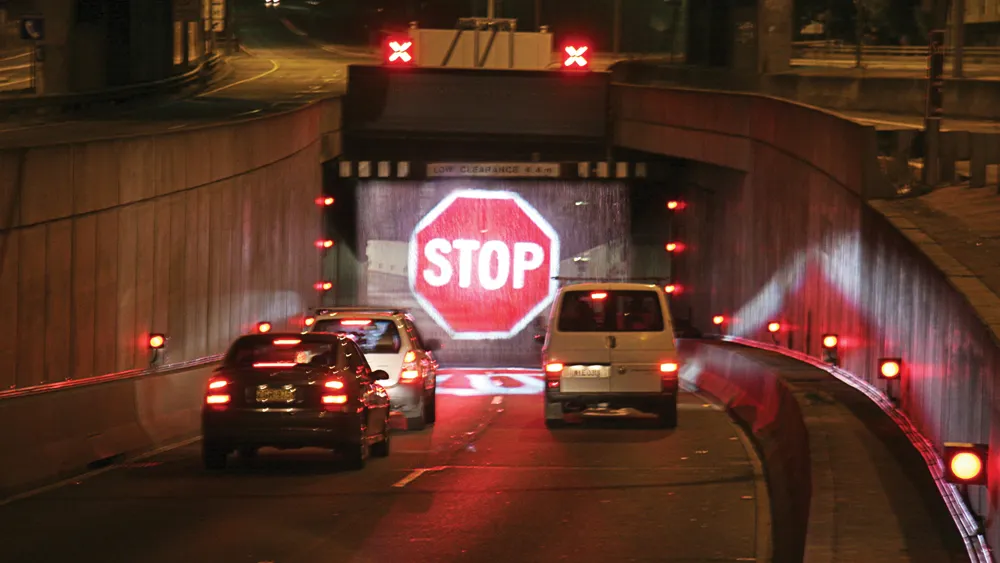Owners of Hondas with crash avoidance features are much more likely to have forward collision warning turned on than lane departure warning, IIHS researchers found in a recent observational survey.
The researchers observed vehicles brought in to Honda dealerships for service. They found that all but one of 184 models equipped with the two features had forward collision warning turned on, while only a third of vehicles had lane departure warning activated.
IIHS says the findings are consistent with pre
March 8, 2016
Read time: 3 mins
Owners of Hondas with crash avoidance features are much more likely to have forward collision warning turned on than lane departure warning, IIHS researchers found in a recent observational survey.
The researchers observed vehicles brought in to Honda dealerships for service. They found that all but one of 184 models equipped with the two features had forward collision warning turned on, while only a third of vehicles had lane departure warning activated.
IIHS says the findings are consistent with previous research showing that vehicle owners found lane departure warning more annoying than other crash avoidance technologies. They may also help explain why studies so far haven't found a consistent benefit from the feature, in contrast to forward collision.
Most lane departure warning systems use a camera to detect lane markings and depend on turn signal use to determine whether a driver intentionally changed lanes or not. Many people don't use turn signals consistently, so the result is a lot of alerts that drivers may perceive as false alarms. Camera sensors also may detect markings such as shifted lanes in construction zones that lead to more nuisance alerts.
"Lane departure warning has the potential to prevent a lot of the most serious crashes," says Ian Reagan, an IIHS senior research scientist and the study's lead author. "However, if people consider it a turn-signal nanny, they may not accept the feature."
For the new study, researchers observed 2013-15 Honda Accords, 2014-15 Odysseys and 2015 CR-Vs at dealerships in Virginia.
In addition to driver preferences, another reason lane departure warning may be turned off more often in these Hondas is that it is simple to do so by pressing a button near the instrument panel. In contrast, to turn off forward collision warning in the Accord and the Odyssey, a driver needs to navigate through several steps of the vehicle settings menu.
The CR-V has a button for its collision mitigation braking system, which includes forward collision warning. However none of the six CR-Vs observed had collision mitigation turned off.
All the vehicles retain the previous on/off setting for each of the two features from one trip to the next.
"In the future, it would be useful to compare systems with different types of alerts and levels of sensitivity to see whether those differences make people more or less likely to use the technologies," Reagan says.
The researchers observed vehicles brought in to Honda dealerships for service. They found that all but one of 184 models equipped with the two features had forward collision warning turned on, while only a third of vehicles had lane departure warning activated.
IIHS says the findings are consistent with previous research showing that vehicle owners found lane departure warning more annoying than other crash avoidance technologies. They may also help explain why studies so far haven't found a consistent benefit from the feature, in contrast to forward collision.
Most lane departure warning systems use a camera to detect lane markings and depend on turn signal use to determine whether a driver intentionally changed lanes or not. Many people don't use turn signals consistently, so the result is a lot of alerts that drivers may perceive as false alarms. Camera sensors also may detect markings such as shifted lanes in construction zones that lead to more nuisance alerts.
"Lane departure warning has the potential to prevent a lot of the most serious crashes," says Ian Reagan, an IIHS senior research scientist and the study's lead author. "However, if people consider it a turn-signal nanny, they may not accept the feature."
For the new study, researchers observed 2013-15 Honda Accords, 2014-15 Odysseys and 2015 CR-Vs at dealerships in Virginia.
In addition to driver preferences, another reason lane departure warning may be turned off more often in these Hondas is that it is simple to do so by pressing a button near the instrument panel. In contrast, to turn off forward collision warning in the Accord and the Odyssey, a driver needs to navigate through several steps of the vehicle settings menu.
The CR-V has a button for its collision mitigation braking system, which includes forward collision warning. However none of the six CR-Vs observed had collision mitigation turned off.
All the vehicles retain the previous on/off setting for each of the two features from one trip to the next.
"In the future, it would be useful to compare systems with different types of alerts and levels of sensitivity to see whether those differences make people more or less likely to use the technologies," Reagan says.









